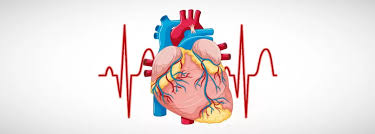Cardiovascular health is a topic on many adults’ minds, and for good reason. Among factors connected to heart disease, hypertension, or high blood pressure, holds a prominent place. Though common, elevated blood pressure is often silent, making it even more challenging to address before complications arise. Here is more information on what hypertension is, the factors contributing to its development, and how it can be treated or managed:
Contents
What Is Hypertension?
Hypertension refers to the consistent elevation of blood pressure in the arteries. Blood pressure represents how forcefully blood pushes against the artery walls as the heart pumps it through the body. It is measured using two values: systolic pressure (the pressure when the heart beats) and diastolic pressure (the pressure when the heart rests between beats). Often called “the silent killer,” hypertension can go unnoticed because it rarely shows symptoms in its early stages. Left unmanaged, it can damage organs such as the heart, kidneys, and brain over time, increasing the risk of life-threatening conditions.
What Causes Hypertension?
Hypertension develops due to a combination of factors, making its prevention and management unique to each individual. Lifestyle and environmental elements, such as poor dietary habits, physical inactivity, stress, and excessive alcohol consumption, are known contributors. High sodium intake has also been linked to an increased risk of elevated blood pressure, potentially leading to hypertension over time.
A person’s genetics and family history often play a role. People with close relatives who have experienced hypertension may have a higher likelihood of developing it themselves. Conditions such as sleep apnea, diabetes, and kidney disorders are also associated with secondary hypertension, which arises as a result of an underlying medical condition.
Certain risk factors are linked to higher chances of developing hypertension. Aging tends to make arteries less flexible, contributing to increased blood pressure over time. Obesity, smoking, and high levels of stress have also been noted as contributors. Maintaining awareness of these factors can play a role in minimizing potential complications.
How Can It Be Treated or Managed?
Addressing hypertension often involves a combination of lifestyle changes and medical interventions. Regular physical activity, particularly aerobic exercise, helps maintain healthy blood pressure levels. A balanced diet encourages overall health as well as heart health. Stress reduction techniques are often recommended for individuals managing high blood pressure.
If lifestyle changes alone do not sufficiently lower blood pressure, medications prescribed by healthcare providers offer additional support in bringing levels under control. Routine blood pressure monitoring is helpful in managing hypertension. Both at-home devices and professional assessments provide a clearer picture of ongoing well-being. Partnering with a healthcare provider to periodically evaluate heart health and discuss potential interventions is equally valuable.
Stay Aware, Stay Healthy
Managing hypertension is about making informed decisions and taking small steps toward better heart health. Understanding the risks and exploring treatment options individually or with a healthcare provider can benefit long-term wellness. If you are interested in learning more about heart health, speak with a medical professional to guide you on this path to a healthier future.

Sarah Wilson, an accomplished writer and seasoned blogger, weaves compelling narratives that transport readers to new and uncharted worlds. With a talent for vivid storytelling and thoughtful insight, her work leaves a lasting mark, enchanting both the imagination and intellect.
